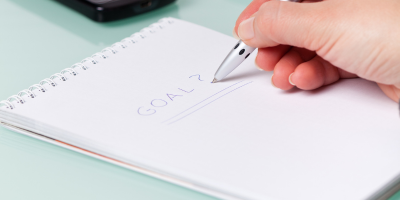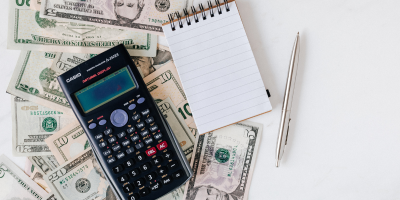For years, the idea of having an emergency fund baffled me. I knew it was step one on all the lists of things to do when starting a budget, but I couldn’t figure out the point of having money stuck away in a savings account somewhere, rather than simply using that money to pay off debt. If you find yourself in a similar situation, then this is the podcast episode for you. Grab a pen and paper and let’s get started.
Next Steps
Creating a budget shouldn’t be hard! Use my FREE Monthly Family Budget Worksheet to help: https://lemonblessings.com/family-budget
Related Resources
- How to Create a Monthly Meal Plan You’ll Love
- 3 Simple Ways to Inventory Your Fridge, Freezer, and Pantry
- How to Make On-the Spot Budget-Friendly Decisions
Additional Resources
Want more? Join the Lemon Blessings’ Membership and you’ll gain access to over 60 budgeting resources, as well as my personal meal plans, recipes, and budgeting strategies. https://lemonblessings.com/membership
Do You Need to Start an Emergency Fund Immediately?
Well hey there and welcome to the Financial Fix Up Podcast. I’m your host, Sarah Brumley. Today we’re chatting about emergency funds – specifically whether you need to start one immediately.
If you’ve ever read any blog post, Pinterest pin, or book on creating a budget, planning for the future, or saving, then you may feel that the topic of emergency funds gets more attention than it deserves. Perhaps you’ve struggled for a long period of time to put together an emergency fund, only to have multiple emergency situations immediately wipe it out. On the other hand, maybe you don’t even truly understand what an emergency fund is, or why you should even have one. Trust me, I’ve been there.
For years, the idea of having an emergency fund baffled me. I knew it was step one on all the lists of things to do when starting a budget, but I couldn’t figure out the point of having money stuck away in a savings account somewhere, rather than simply using that money to pay off debt. I’d learned to depend on my credit cards as a form of “emergency fund” and didn’t understand the difference between having money in an account versus a credit limit of the same size. I know now, they are two completely different things but it definitely took me time to get there.
And that’s why I want to spend some time today talking about what an emergency fund actually is, the importance of having one, and why you should create one ASAP.
What is an Emergency Fund?
An emergency fund is, put simply, money set aside to counteract any unforeseen expenses, including major medical bills, unexpected and immediately necessary household maintenance, and, in extreme cases, the loss of employment. It’s not money that is used lightly, but is available for a set of circumstances decided ahead of time.
If up until now, you’ve had the same feelings I did about an emergency fund, then your next question is probably: Why should you have an emergency fund? I mean, you can use your credit card, hope that nothing happens, and continue on in life as you have for the last decade (or more), but I’d like to encourage you that having an emergency is much more than that. In fact, I have three reasons
An Emergency Fund Can Save Your Budget
The first reason is that an emergency fund can save your budget.
Picture this: you’ve created the perfect budget. Your family is excited to stick with it, and four months have passed without incident (I didn’t say this was a true story). Out of the blue, there’s a death in the family, your roof leaks, and your only mode of transportation needs major repairs.
Despite having that perfect budget, you are now looking at sacrificing the money you spend on daily living and groceries in order to get to the funeral, repair the roof, and get your car to the mechanic. Your kids aren’t going to get their new tennis shoes this month, ramen noodles will be served at every meal, and everyone will wear dirty underwear because you’ve already used the last of the laundry detergent.
If you haven’t cut up the credit cards, you might choose to use them at this point, not only impeding the great progress you’ve made paying them down over the past months, but also allowing those emergency expenses to cost you more in the future due to the high revolving interest rates those accounts have. That would be a mistake, though, and is exactly why you need an emergency fund.
If you’ve placed enough money in your emergency fund, then your monthly budget will remain unaffected, your debt payoff effort won’t be thwarted, and you, hopefully, won’t lose momentum in this push for financial freedom.
With an emergency fund in place, you can still afford to eat this month, as well as cover some, if not all, of those expenses. Additionally, any momentum you’ve had with your budget won’t be destroyed simply because your monthly budget couldn’t absorb the cost.
An Emergency Fund Provides a Cushion for Your Accounts
And that leads us to the second reason you should have an emergency fund. And, like many, we have spent years zeroing out our bank accounts each month. I’d never given much thought to saving, especially when it came to an emergency fund, but when we started, I found one perk that no one really talks about: your emergency fund can act as a cushion in your account.
The thing about living month-to-month while zeroing out the accounts is that no budget is completely perfect. There’s always some payment that comes out of the account at the most inopportune time or a paycheck that gets delayed for any number of reasons. Having an emergency fund allows those expenses to be absorbed within the parameters of your monthly budget. It also keeps you from racking up late fees, returned check fees, and overdraft fees.
Note: this isn’t a fund to borrow against because that puts you back in the “debt” category, rather it’s money that’s already in your account when say, the electricity bill is due today, but payday isn’t until tomorrow. That money is coming out of that paycheck, as part of your monthly budget, but you are able to pay the bill on time and perhaps forgo any late fees or service charges in the meantime.****
An Emergency Fund Assists in Breaking the Pattern of Debt
The final reason to have an emergency fund is because, without an emergency fund, breaking the pattern of credit card use in your life is nearly impossible.
Justin and I have had quite a few emergency situations over the years that we didn’t have enough money to cover. Each time, we’d choose to put that cost on a credit card, with the belief that we would just pay it off. (You know, like next month, or whenever our ship came in.) That’s all well and good, but if you are anything like we were (and continue to be), then it doesn’t stop there.
For us, seeing that we had, for example, $1,000 already on a credit card, our minds shifted from the “paying down debt” and “debt free” mode we’d been in, straight back into a “spending needlessly with no care for the future” mode. Within a month, guaranteed, whatever credit card account we’d used was maxed out and, quite possibly, the rest of our cards as well.
That’s what debt does: it lures you in and doesn’t let go. Like an alcoholic who can’t take a single sip of alcohol without drinking the entire bottle, my husband and I can’t place a single charge on a credit card without eventually maxing out the whole account.
It’s an addiction, folks. Don’t let it reel you back in. Start that emergency fund and put every penny into it until you have what you deem to be a safe cushion for emergencies only. Then cut the cards up and focus on paying off the last however-many years of emergencies that you’ve put on them.
Putting Together Your Emergency Fund
So, if you need this emergency fund, how do you go about getting one? It’s a question I’m asked a lot because it can be especially hard to think about putting away $1,000 (or whatever amount you feel is necessary for your family) when you are still living month-to-month.
My top suggestions are these:
Decide how much you need to save. (This is a long, drawn-out topic that requires a post for another day, however, starting with $1,000, or the amount of your highest deductible, is a safe bet!)
Look around for things you have that you can sell, ways you can bring in additional income, and money-saving tips for the budget you already have. (Check out my grocery savings ideas here.) Additionally, check your change jars and have the kids search in the couch cushions – we managed to come up with nearly $60 this way when we started ours. Stick any of this “extra” or “saved” money in your emergency fund immediately.
Make the minimum payments on your credit cards and divert any additional monies to the emergency fund before paying off the debt.
Create a plan: what do you consider emergencies that this fund will be available for. Will you limit it to emergency health care, housing expenses, and your mode of transportation, or will you extend that use to include your computer, television, and an occasional dinner out (by the way – those are not emergencies unless of course, your computer is your means of income)? By making this plan ahead of time, your emergency fund will be available for use when you actually need it.
It’s a process
I know that I’m barely touching on this subject today, but I promise that we’ll have many more discussions about it over the next few months. I do want you to remember, though, that achieving your version of financial freedom is a process, not an overnight fix, but an emergency fund is a great place to start, and I highly recommend it!
And if you need a fresh start with your monthly budget or are ready to put together your first one, make sure to grab my FREE Family Budget Worksheet. You can find it at lemonblessings.com/family-budget or use the link in the show notes.
Whatever you choose, I just want you to know that I’m cheering you on! You’ve got this! Have an amazing day and I’ll chat with you again next time.



